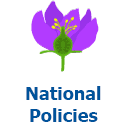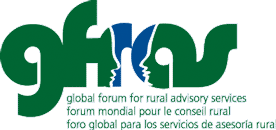 Every country has developed, formulated, and decreed national policies related to rural advisory services. Find some examples here. If you are looking for a national policy from a specific country, please use the search function, selecting the category “National policies” and the tag for the country.
Every country has developed, formulated, and decreed national policies related to rural advisory services. Find some examples here. If you are looking for a national policy from a specific country, please use the search function, selecting the category “National policies” and the tag for the country.
Integrated Homestead Food Production
Over the past years, the International Fund for Agricultural Development (IFAD) has been increasingly proactive in enabling smallholder farmers across the developing world to increase production and productivity, while concurrently enhancing their access to markets and integration into the value chains. However, experience shows that productivity and income increases do not automatically translate into improved nutritional status, especially among women, young people and children. Around three quarters of undernourished people live in rural areas of developing countries and are those producing most of the food. Addressing nutritional issues is, therefore, crucial to combating rural poverty, feeding the world in a sustainable manner and ensuring a healthier future for the younger generations. Integrated homestead food production (IHFP) is one of the most promising pro-poor strategies to address undernutrition and specific nutritional deficits such as micronutrient deficiencies (Box 1). In a number of programmes in rural areas of all the developing regions, homestead gardens have been providing access to nutritious fresh food to households with relatively limited economic and productive assets. More recently, smallholder fish-farming has also become an important source of animal protein for poor households in rural areas.
Homestead Gardening
This manual is intended for use by food security, nutrition, and livelihood programmers and practitioners for improved household food production and income generation. It represents a compilation of techniques and lessons learned from homestead gardening programs successfully implemented through the Consortium for Southern Africa Food Emergency (C-SAFE) in Lesotho. Many of the techniques described have been developed over time in a variety of countries and programs, and have been adapted in semi-arid and mountain climates in the southern lowlands of Lesotho. The success of the methodology has prompted Catholic Relief Services (CRS), Caritas Lesotho, and other partners to apply homestead gardening activities in other programs, such as the Mountain Orphan and Vulnerable Children Empowerment (MOVE) project.
Healthy Harvest
A Training Manual for Community Workers in Growing, Preparing and Processing Nutritious Food
In 2006, the Food and Agriculture Organization of the United Nations (FAO), in close collaboration with the Food and Nutrition Council (FNC), the Nutrition Unit in the Ministry of Health and Child Care and AGRITEX in the Ministry of Agriculture, Mechanisation and Irrigation Development, developed the Healthy Harvest training manual as a tool for training community-based extension workers in good nutrition, the growing, preparing and processing of nutritious food. The manual has been used, since its publication, to train hundreds of government and NGO extension workers.
Agriculture, Nutrition and Health Essentials for Non-specialist Development Professionals
Most delegates at the 2020 Conference Leveraging Agriculture for Improved Nutrition and Health were expert or programmatically active in agriculture, nutrition, or health, but very few had specialist expertise that crossed sectoral boundaries. A major finding of the conference was that a key barrier to integration between agriculture, nutrition and health professionals was a lack of understanding of the sectors in which participants were not active, and lack of a common ‘language’ with which to debate. This brief report aims to outline basic concepts and definitions, tools and indicators, and common interventions used by each development sector, in order to provide a baseline level of knowledge and understanding on which to build dialogue and collaboration.
Getting Started: Running a Junior Farmer Field and Life School
In response to the growing number of orphans and vulnerable children, the Gender, Equity and Rural Employment Division (ESW) of the Food and Agriculture Organization of the United Nations (FAO), in close collaboration with the World Food Programme (WFP), has supported the development and implementation of Junior Farmer Field and Life Schools (JFFLS) in various countries of East and Southern Africa over the past several years. In the process, information and training materials have been developed, and reports produced. This JFFLS Getting Started! manual is the culmination of experiences of many individuals, communities, and organizations in Kenya, Mozambique, Namibia, Swaziland, United Republic of Tanzania, Zambia, and Zimbabwe, and is the result of a significant commitment by numerous organizations and individuals over the past few years.
Food and Nutrition Security Training Module
This Food and Nutrition Security Training Module has been prepared to guide training in which facilitators will help participants in Farmer Field Schools to learn more about nutrition. The training can be run by one or two facilitators who have knowledge and experience in training, using active participatory methods. The training is divided into five topics which can be covered on separate training days. The course
includes information on food security; following the guidelines for good nutrition using locally available nutritious foods; food needs of family members with special food needs (pregnant and lactating women, infants and children); and personal and environmental hygiene and food safety.
Food and Nutrition Handbook for Extension Workers
The handbook will help extension workers to:
- Apply the Essential Nutrition Actions (ENA) at household and the community levels.
- Appreciate the importance of agriculture in improving nutrition and the implications of malnutrition to agricultural productivity.
- Mainstream nutrition in their work plans and routine activities.
Nutrition Handbook for Farmer Field Schools
This handbook is written so that participating farmers and their families can equitably address food production and nutrition issues for good health. FFS participants are encouraged to share what they learn with farmers in their community, schools and other community groups so their whole community benefits. Persons working in extension support services such as Agricultural Extension Development Officers (AEDOs), Health Surveillance Assistants (HSAs), and other service areas (Community Development, Forestry, Environmental Health, Teacher Development Centres, schools, etc.) can use the handbook to support farming families to diversify food production and utilization for better nutrition.
Farmer Nutrition School Session Guide
Agricultural officers and DANIDA agricultural experts were involved in developing and field-testing this manual, which is a project of the GoB agricultural departments. This guide was developed to help community members (both women and men) and community groups start and improve their technical understanding in the following areas:
1. Vegetable farming, by improving the method of selecting sites, species and crops, preparation of beds and planting pits for planting vegetables, and through successful farm management;
2. Rearing local chickens through improved semi-scavenging methods applying the techniques of using the improved hazol (brooding nest), early separation of chicks from the broody hen, using two to four layers of hygienic poultry shed and rearing chicks in cages or the multi-layer poultry shed, and ensuring balanced feeding and bio-security;
3. Fish farming in homestead base ponds using semi-intensive composite carp culture techniques incorporating the small indigenous species, which have high nutritional values.
Farmer Field School: Implementation Guide
This guide builds on the three previous versions of the Farm Forestry Field School (FFFS) manual prepared by the Intensified Social Forestry Project in Semi Arid Areas (ISFP) of Kenya. The manual was first developed in a workshop setting with the participation of Kenya Forest Service (KFS) staff members and JICA experts at the onset of the ISFP in 2004. FAO was involved in the workshop providing technical assistance to design the FFFS implementation process, facilitate the workshops and compile workshop outputs into the manual. The ISFP conducted the manual review twice through workshops. The KFS field staff members who carried out the FFFS presented the reality of the field and issues faced by farmers. Such experience sharing enriched the entire project implementation process and subsequently this publication. FAO was tasked to finalize the reviews and was asked to carry out an independent external review in 2007.

